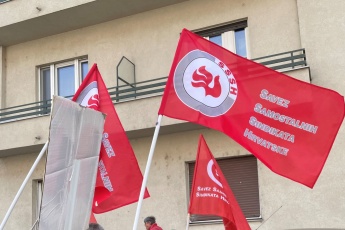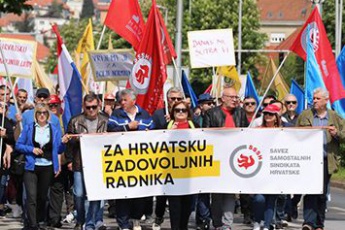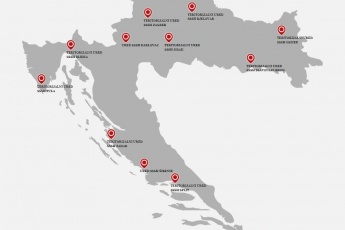
- sssh@sssh.hr
- + 385 1 46 55 013

International cooperation
As the first Croatian trade union confederation to take out international affiliations, the UATUC joined the International Confederation of Free Trade Unions (ICFTU) in 1996. Ten years later, the ICFTU merged with the World Confederation of Labour (WCL) to form a new international umbrella organisation – the International Trade Union Confederation (ITUC) – of which the UATUC was a co-founder.
We have been members of the European Trade Union Confederation (ETUC) since 1998.
We participate in the decision-making bodies of these international trade union organisations and in the work of their expert committees and groups, making our contribution to international trade union struggle. We receive in turn expert and other assistance regarding our work in Croatia.
Our international activity enables us to influence the decisions of important international organisations, above all the International Labour Organization (ILO).
Particularly important to us is the European level where we have an impact on EU policies by participating in the work of the European Economic and Social Committee (EESC); in the tripartite administrative bodies of European agencies such as the European Foundation for the Improvement of Living and Working Conditions (Eurofound); and in negotiating groups for European social dialogue and other bodies.
The UATUC cooperates with trade unions from many countries on specific issues and projects, led by principles of solidarity and unity. Those activities serve to improve the position of workers, prevent social dumping among countries, build a fairer society and strengthen trade unionism.
In 2011 we were one of the founders of the Regional Trade Union Council Solidarnost which gathers trade union confederations from Croatia, Slovenia, Serbia, Bosnia and Herzegovina, Montenegro and North Macedonia. Solidarnost deals with topics of common interest to the countries of the region: improving the labour and social rights of workers; and sharing our experience with the process of adapting Croatian legislation to European standards and with joining the European Union.
We also deal with solving the problems of cross-border workers through interregional trade union councils, primarily with Italian trade unions.
TAKE MATTERS INTO YOUR OWN HANDS
Only when organised in a union can workers collectively bargain with the employer about their wages and working conditions and organise strike action if they cannot agree with the employer on these issues.







